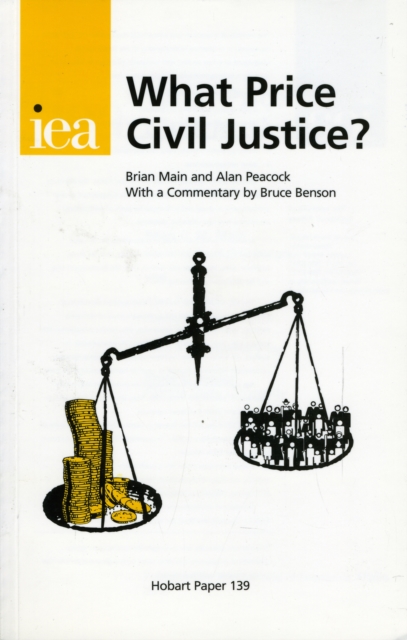
What Price Civil Justice? Paperback / softback
by Sir Alan Peacock, Brian G. M. Main
Paperback / softback
Description
In Britain the costs of justice - to taxpayers and litigants - have been rising faster than GDP.
For efficiency reasons and to encourage innovation, reform is required and some action is already underway.
But reform is complicated because 'justice' is a complex product - bought on 'trust' by many consumers and with precedent and spillover effects.
Some good ideas for reform are already in circulation.
But there is a case for experimentation rather than trying to work out in advance which ideas should be implemented.
Market forces should have a bigger role in the civil justice system and there should be more competition in the provision of dispute resolution services.
Probable features of a reformed judicial system would be competitive tendering, better information for clients about alternative ways of proceeding and more power for trial judges to control the passage of a case.
The supply of judges also needs to be addressed: court fees could be determined by market forces and the proceeds ploughed back into judicial capacity.
Alternative dispute resolution (ADR) procedures allow parties a choice of jurisdictions. ADR produces precedents, to the extent they are required, and does not need the threat of litigation in the background.
A big advantage of ADR is that it avoids monopolized law which otherwise tends to produce inflexibility, bad rules and politicization.
Information
-
Available to Order - This title is available to order, with delivery expected within 2 weeks
- Format:Paperback / softback
- Publisher:Institute of Economic Affairs
- Publication Date:01/01/2000
- Category:
- ISBN:9780255364294
Information
-
Available to Order - This title is available to order, with delivery expected within 2 weeks
- Format:Paperback / softback
- Publisher:Institute of Economic Affairs
- Publication Date:01/01/2000
- Category:
- ISBN:9780255364294






